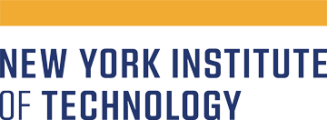Online Degrees Blog at New York Tech
Explore the tools data scientists use for analysis and visualization, and how you can expect to use them to enhance your data science skills.
Discover why data science is one of the decade’s most in-demand careers, offering high salaries, job security, and opportunities across industries.
Discover how machine learning is transforming healthcare and finance through predictive modeling, automation, and better decision-making.
Explore how an online Master's in Data Science from New York Institute of Technology can help you launch a career in this mission-critical business function.
Explore how a master’s in data science can help you switch careers, build in-demand skills, and break into the fast-growing STEM field.
Explore how deep learning and neural networks drive advanced AI solutions, shaping the future of machine learning with real-world applications.
Explore the cutting-edge data science technologies set to dominate in 2025. Discover how these innovations will reshape the industry.
Want to stand out in tech? From machine learning to data visualization, learn the top ten data science skills every professional needs to succeed.
Discover how data science models drive business success. Learn about key applications, benefits, and implementation strategies.
Explore the key differences between data science and data engineering careers. Discover salary potential, required skills, and job outlook.










